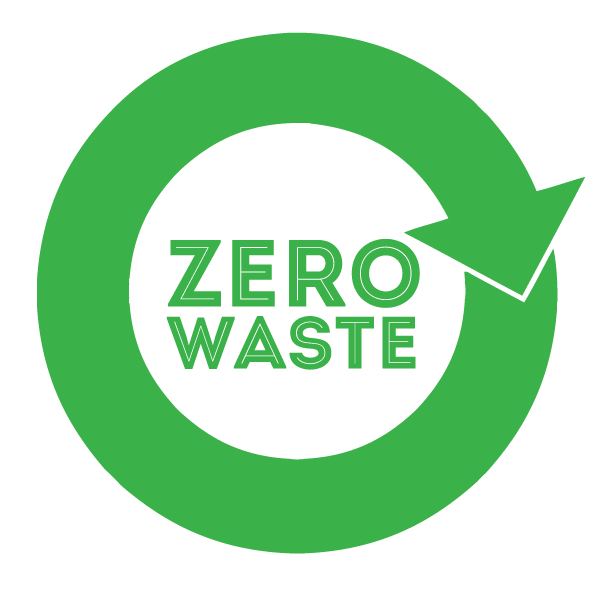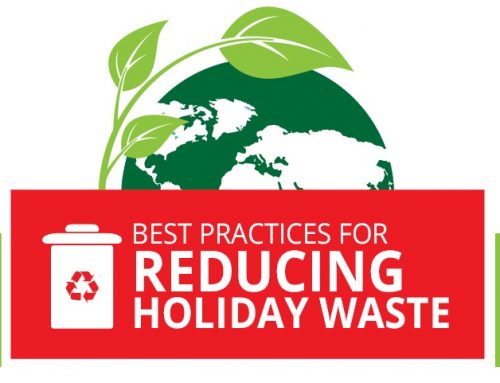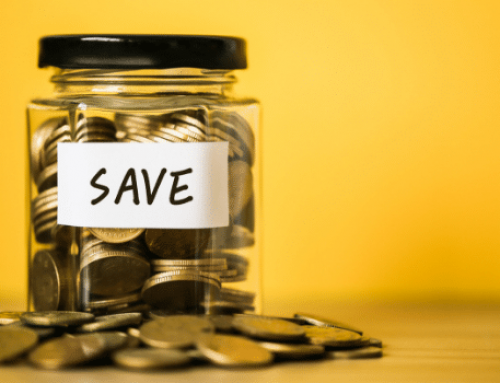The Goal of Zero Waste is to have a circular economy where there is no such thing as rubbish so that we are copying nature. There is no rubbish in nature. So instead of disposing of resources, we create a system where all resources can be put to use in one capacity or another.
Birdhill Zero Waste Tips:
1. Buying Less is the Number 1 thing you can do in order to have less waste. Ask yourself 4 questions before purchasing:
a. Do I really need it?
b. Is it absolutely necessary?
c. Can I make do with something I already have?
d. Do I need to own it? Could I rent or borrow it?
2. Buy with Thought. Before buying, ask yourself?
a. Can I find it second hand?
b. Can I source it locally?
c. Could I borrow it from a friend?
d. Is it made to last and can it be repaired?
e. When finished with it, what can I do with it?
3. Refuse disposable straws every time you order a drink. FACT: Plastic straws cannot be recycled & take up to 200 years to decompose!
4. Give up bottled water and use a stainless steel bottle There is one on the market designed in Ireland. FACT: It takes 3 litres of water to manufacture a 1 litre bottle of water!
5. Use a reusable coffee/tea mug/cup rather than countless disposable ones for your caffeine fixes. Many outlets are offering discounts when you do so. FACT: In Ireland, it is estimated that we dispose of over 200 million of theses disposables every year!
6. Aim to purchase the large cardboard version of detergents rather than the plastic pods or tablets in plastic packaging. The cardboard box can be recycled.
7. Place sandwiches in lunchboxes instead of wrapping with cling film.
8. Pour unused liquids into containers with lids instead of covering a pouring spout with cling film.
9. Use glass or ceramic containers to heat food in the oven or microwave and cover with a plate or dish (rather than cling film) if necessary.
FACT: Cling film should not touch food while reheating as chemicals may leach.
10. Replace plastic cling film for glass or reusable containers with lids. An alternative to cling film is a saucer or a lid. FACT: Cling film cannot be recycled.
11. Use a cake tin for storing sweet treats instead of covering with cling film.
12. Zero Waste Cold Remedy: Ginger Root Tea – slice it, boil in water for 5 minutes and drink it up. You can reboil it or serve it from the fridge with no problem. FACT: Ginger root has high levels of Vitamin C.
13. Zero Waste Cold Remedy: Immunity Tea – 1 tblsp chopped ginger, juice of a lemon, shake of cayenne pepper and hot water. FACT: A key ingredient of cayenne pepper is capsaicin which helps relieve congestion.
14. Blowing your nose with a cloth hanky rather than a disposable tissue is so soft for your nose and prevents a red, chaffed nose. However, if you are suffering from a cold or flu, tissues are the better option in terms of hygiene and spreading the cold/flu virus.
15. Elderberry Syrup to boost the immune system. Elderberries are freely available on our hedgerows in September. All you need to add is water, raw honey, cloves, root ginger and cinnamon. Holds well in sterilised glass bottles.
16. Think of using loose leaf tea instead of tea bags. FACT: Most tea bags are sealed with plastic.
17. Reusable bags can be used for more than food shopping – clothes, DIY, garden centre etc. Train yourself to keep large reusable bags in the car, small foldable ones in your pocket or bag. FACT: You will always be prepared!
18. Stop Unwanted Post – put a sticker on your letterbox ‘No Junk Mail’ or contact Irish Direct Marketing Association (www.idma.ie) and request to be added to their Mail Preference Service in order to have your name removed from direct mailing lists. FACT: A study in Ireland found some householders receive 4kg/almost 9 lbs of junk mail annually.
19. Use a reusable silicone mat for lining bakeware when cooking at high temperatures instead of parchment paper. FACT: Easy to clean, makes surface non stick and less browning.
20. Think about changing to a bamboo toothbrush. FACT: If you change your toothbrush every 3 months, then within 10 years you will have sent 40 plastic toothbrushes to landfill.
21. Brushes rather than sponges are more hygienic for wash up. Consider using wooden washing up brushes with replaceable heads. FACT: Sponges are a magnet for bacteria as it thrives and grows in warm, damp environments.
22. Replace disposable napkins with cloth napkins.
23. Use real plates and cutlery instead of the disposable ones.
24. Before going food shopping, check what you already have in your fridge. Sit down and take 5 minutes to make a quick meal plan. Even a rough idea of what meals you will be eating will let you know what to eat first and what to buy. FACT: In Ireland, we waste food that would fill Croke Park 2 ½ times, to the top!
25. Buy less food than you think you will need. Sometimes our eyes are way bigger than our tummies. FACT: Supermarkets are experts at marketing.
26. Most fruits and vegetables can be frozen if looking a little tired and used again in soups, smoothies etc.
27. Prep once, cook once and eat multiple times later. FACT: Saves time at all stages.
28. Buy the best, that is, if indeed you have to buy. Invest in the best that you can afford. Remember though, “the best” does not mean a brand, rather something that is well made so it lasts longer and so better for both you & the planet.
29. Choose second-hand furniture & other household items, if at all possible. Today, referring to them as either antiques or vintage may make them more “chic”. Examples of rich hunting grounds are auctions, markets, charity shops, family members, friends, internet sites such as Adverts – Items for Free or Swaps; Free Trade Ireland, etc.
30 Refrain from throwing things out if they are broken. Look at getting them fixed or try repairing them yourself. YouTube has videos demonstrating repairs, or use Sugru, a mouldable glue that turns into rubber (it can fix, bond, cushion, replace, create and seal). Repairs can keep items out of landfill and save more of the planet’s resources.
FACT: Sugru was invented by an Irish woman.
31. Consider changing to rechargeable batteries when you need to replace batteries.FACT: Single-use batteries require 50 times more power to manufacture than they yield! Rechargeable nickel metal hydride (NiMH) batteries can be reused hundreds of times before they wear out.
32. Try to buy local food and if you cannot buy local, then buy Irish, British or European, in that order.FACT: Transporting grapes 11,265 km from Chile is not sustainable.
33. Finish off your jars of food, tubes of condiments, squeezy bottles of personal care items. Cut the end of tubes or squeezy bottles to get the last quarter of the product. Then put through the dishwasher next time it runs, or rinse after washing the dishes.FACT: Plastic toothpaste tubes can be recycled once cleaned, and cut the threaded neck off the top of the tube as it will not be clean.
34. At the start or end of each season, check if shoes or boots need reheeling or resoling or indeed if they have had it! Same goes for handbags you have not used for a while.
FACT: Old shoes are accepted at most recycling centres.
35. Be wary of bargains, sales and giveaways. Ask yourself – Do I really need this thing? Or love it? Once the item enters your home, it will be tough to get it out again.
FACT: As consumers we have become unable to distinguish between what we want & what we need!
36. Kitchen Declutter: For the ideal kitchen presses, start by getting everything out and seeing what you have there. Then be ruthless – use items that are close to their use-by date; items you are never going to use, donate to a friend who will use them.
FACT: Knowing what you have will save you both time & money.
37. Kitchen Declutter: Glass looks good & enables you to see the contents easily. Reuse glass jars & protect ingredients from humidity & pests. Remember to label.
38. Kitchen Declutter: Fill the kitchen presses in organised zones. Place baking items such as flours, baking soda, bread soda, cooking salt, etc. together on one shelf; pasta, rices & pulses together on another. You can then clearly see what you have in stock and there should be no unnecessary buying.
39. Kitchen Declutter: If your shelves are deep, items get pushed to the back and are forgotten & go out of date. Try a ‘stepped shelf organiser’ which will make it easier to see what you’ve got.
40. Kitchen Declutter: Use a pedestal cake stand to hold olive oil, other oils, salt, pepper and other regularly used seasoning. This saves time & money.
41. Kitchen Declutter: Keep most frequently used items such as oil, flour, salt & canned items at waist or eye level for easy access. Place less frequently used items on lower shelves. Lightweight items are perfect for high shelves.
42. Consider buying a slow cooker. It is a win-win as the cheaper cuts of meat are the most suitable, becoming tender & moist during the long cooking process which you can time to have ready when you get in the door in the evening. FACT: Tiny fraction of energy used, tastier meals & easier to prepare.
43. Never buy kindling again: Save money on overpriced sticks found on sale at garage forecourts & other outlets. There is free kindling available at N7 Pallets at Gooig where one is invited to take the broken pallets left by the road side.
44. Tackle night time energy vampires. Electronic devices turn into vampires at night, sucking up energy. You can do the DIY every night switching off devices or invest in smart sockets or power strips which cut off the current for you.
FACT: Standby or vampire appliances account for 10% of a home’s energy usage.
45. Grow your own flowers for the table. You can grow varieties that you cannot find in the shops e.g. lilac, forget-me-knot, foxgloves, violets, cherry blossom, etc. FACT: We import much of our cut flowers from Kenya which has contributed to drought & social tension. The composition of many cut flowers is as much as 95% water!
46. Green Cleaning: Avoid poor interior air quality by opening windows as often as possible to allow in fresh air & keep any toxins flowing out. Homes are better insulated than ever & the presence of toxic materials & substances build up.
FACT: Fragrance may be the most common type of chemical in your home e.g. laundry powder, fabric softeners, deodorisers, shampoos, hair sprays, gels, lotions, soaps, powders, perfumes & scented candles & lots of others you may not know about.
47. Green Cleaning: Whenever possible, go the unscented route for air freshener or deodoriser. Scented products do not clean or disinfect the air, instead they add chemicals to the air we are breathing. Use better ventilation and place a bowl of bread soda or white vinegar to freshen up a room that needs it. House plants are good for filtering interior air, in particular broad green leaf plants.
48. Green Cleaning: Antibacterial cleaners do not clean hands better than regular soap and water (FDA Research).
FACT: They add to the risk of breeding “super germs” that are antibiotic resistant.
49. Green Cleaning: Instead of buying chemicals to unclog your slow moving sink, follow this tip. Pour a kettle of boiling water down your drain. Once down, however slowly, place half a cup of bread soda down the drain & let it sit for a few minutes. Follow this with one cup of vinegar. Place the stopper in the sink & let it sit for up to 15 minutes. Then finish with a kettle of boiling water.
50. Green Cleaning: Lemons are a good alternative to bleach. To remove mildew from shower curtains use lemon & salt. First, soak the curtains in salt water for 10 – 15 minutes. Drain the water & rub the stains with a cut piece of lemon. Then rinse out with warm water & hang out to dry.
51. Green Cleaning: To take strong smells from the fridge, dip a cotton ball in a little lemon juice & leave inside for several hours.
52. Green Cleaning: Many hand washes contain microbeads which get into our water supply & eventually our marine life. If you need to get rid of strong smells from your hands, rub them instead with lemon peels.




